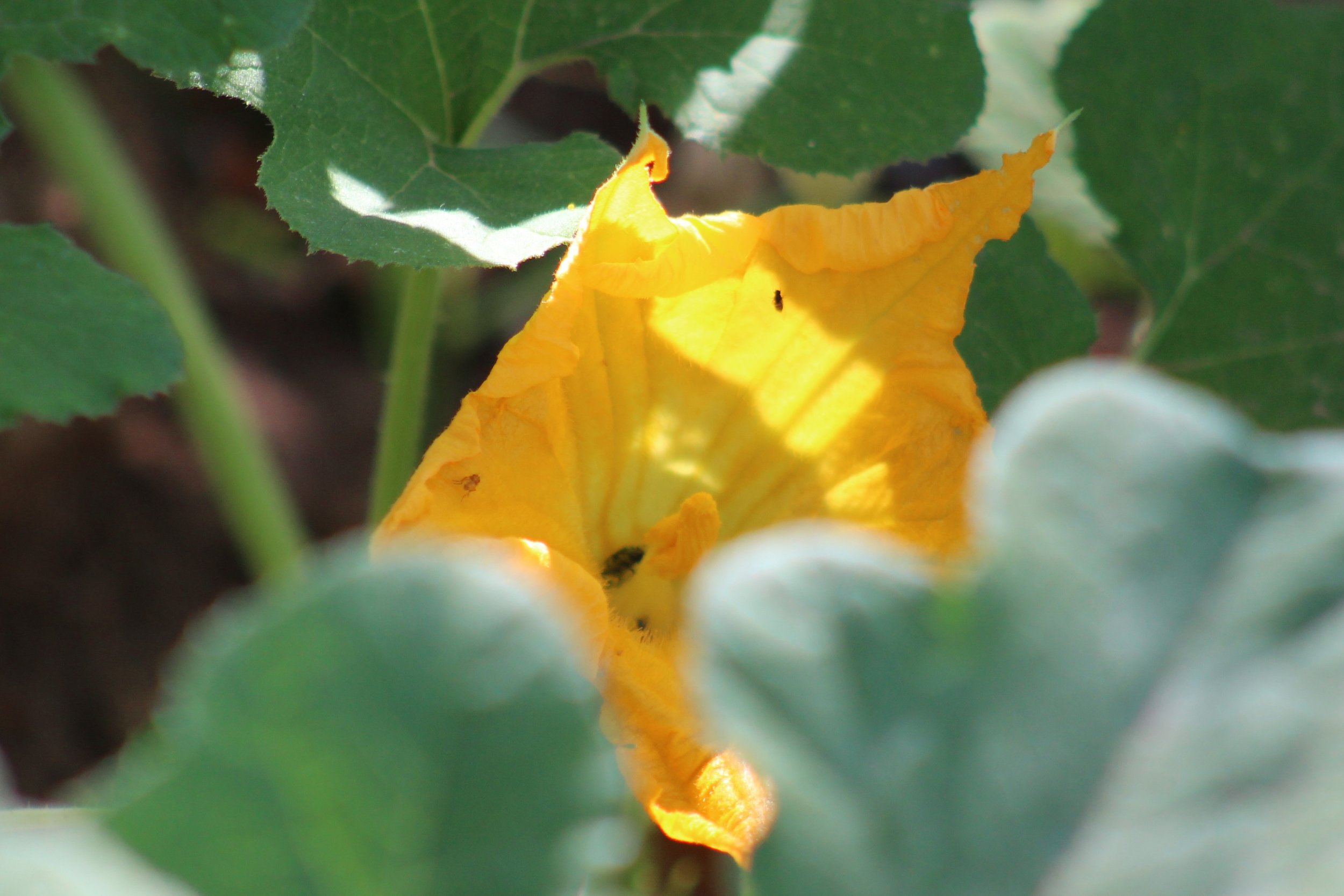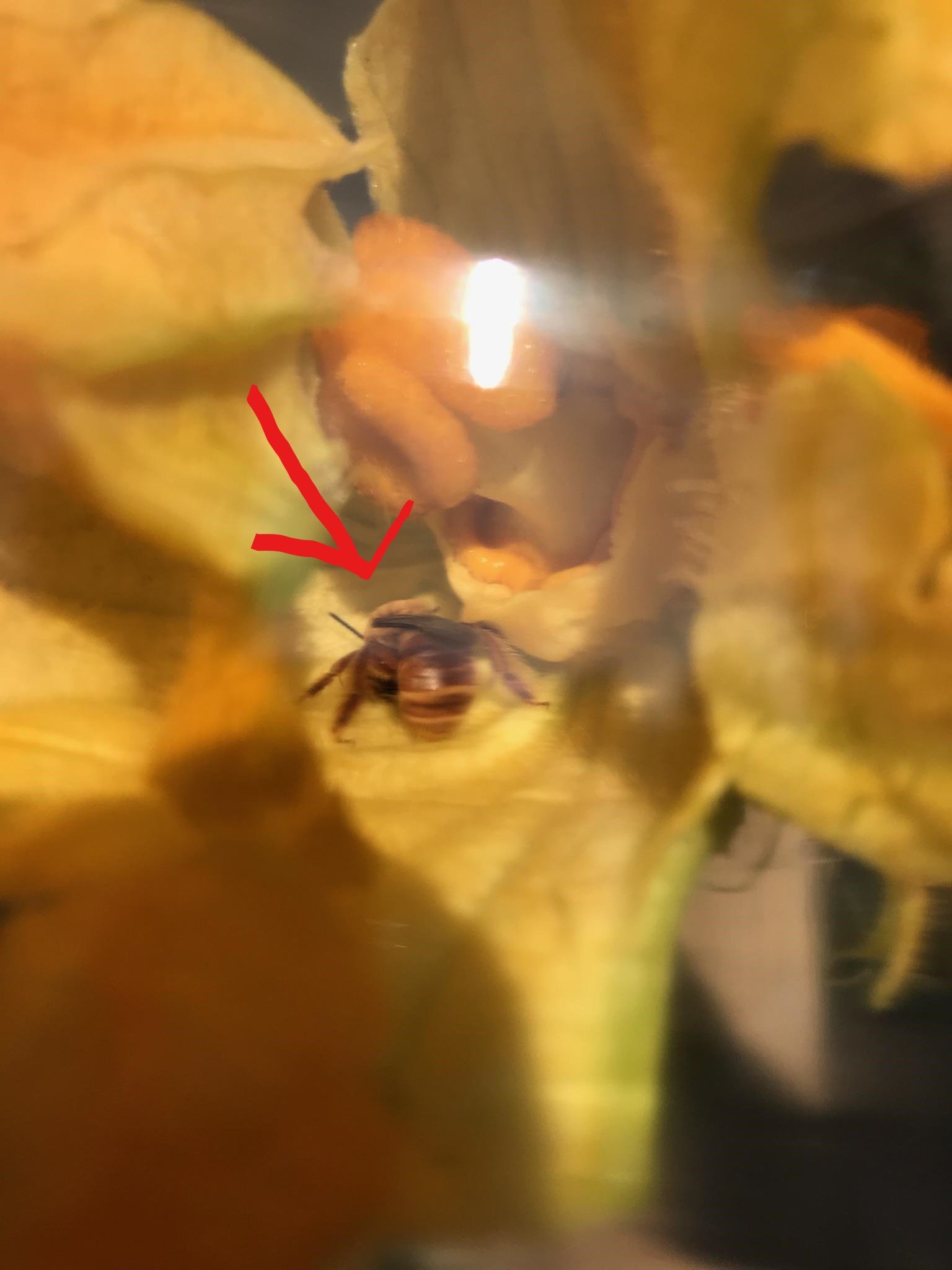Let it Bee (Whisper Words of Wisdom)
The couple who stayed in the bunkhouse this week were both PhD students. The woman is studying bees, She was delighted to discover squash bees in our garden working diligently deep in the centers of squash blossoms. Her partner’s focus is insects. I lack the inclination and discipline necessary to be a scientist, but I marvel at folks who have the propensity to hone in on something as specific as bees.
I am hardwired to linger in the grey areas of life. While driving or taking a shower, I ponder the words we use and the context in which we use them. Kismet feels fun on the tongue. It’s Arabic for divide and was adopted into Turkish to mean fate, as in the way we use the word in English. I wonder if the Muslim faith believes in fate and how this word that once meant divide came to mean something that in the end, brings us, the universe, and our faiths together. Looking into a dog’s eyes, I see the reflection of my best self and worry that science and politics has whittled away so completely at the natural world that perhaps I have lost bits of tenderness and intuition along the way. This is how my brain works. The edges are fuzzy and bleed into one another. In short, I’d make a terrible scientist. That said, if I wasn’t deathly allergic, I may have committed myself to the lives of bees as they answer the philosophical, religious, cultural, and political questions that have plagued humans since the dawn of our existence.
On our morning walk down the runway, Ron and I came to the conclusion that honey bees would have been wiped from the planet long ago if the little buggers didn’t sting. Hives would have been robbed clean by cave dwellers and nomadic folks if bees acted more like puppies or butterflies. Their sting reminds us nothing worth a lick is given up freely. I’d never even heard of a squash bee or the 20,000 other species of bees that inhabit the planet until our guests arrived. The honey bees we have here at the ranch are perfectly happy living in cramped, warm quarters of 15,000 to 60,000 whereas squash bees are solitary creatures who nest in the ground. In human terms, I imagine it’s like our small community of say 500 versus the 8.5 million people that make up New York City.
By some metrics, I have the home range of a female black bear. I need 3 to 10 square miles of open space to feel at peace. Some folks I know live in apartment buildings akin to marmot burrows. Whatever the case may be, humans fall somewhere on the home range continuum. How close is too close? We don’t have a great deal of crime out our way, no shootings this year that I know of. Chicago, on the other hand, has had over 1,400 shootings since the first of the year. Does having people crammed into such close proximity increase the likelihood of crime? I have no idea, but I do know this: if bees are in harmony whether living on top of one another or nestled alone in the ground, why is it so difficult for us?


